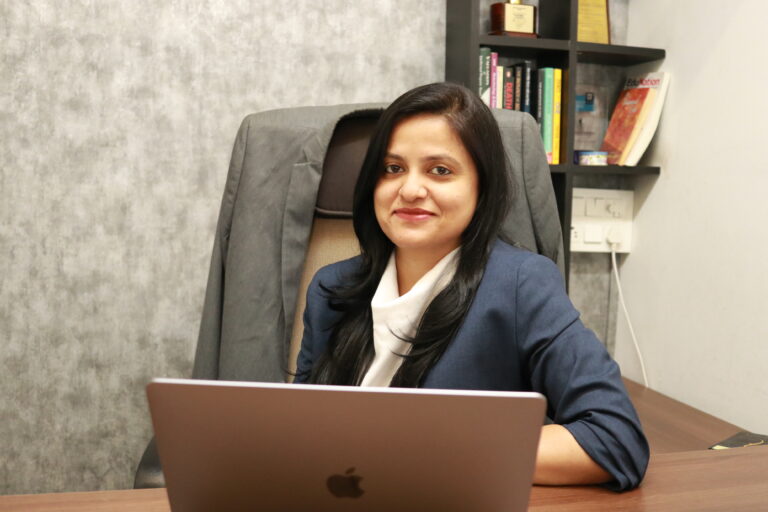Q: Can you share a bit about your journey in technology? How did you transition into your role as a Principal Technical Account Manager at AWS?
Neel Sendas: My career has been a dynamic mix of engineering, business, and cloud computing. I started with a degree in Computer Science and began as a software developer, working on application monitoring platforms. This experience helped me develop a deep understanding of system architecture and performance optimization.
Later, I transitioned to a major financial services firm, managing enterprise-scale technology infrastructure. This exposure to mission-critical applications sparked my interest in the business side of technology, leading me to pursue my graduate degree at Carnegie Mellon University. After earning my MBA, I moved into technology consulting, focusing on IoT and machine learning solutions.
This path naturally led me to AWS, where my current role as a Principal Technical Account Manager allows me to combine my technical expertise and business acumen to help enterprises innovate using cloud technology. Being part of AWS places me at the forefront of the cloud revolution, enabling me to guide organizations in implementing and scaling their cloud operations effectively.
Q: As someone deeply involved in cloud operations, what are the biggest challenges and opportunities enterprises face when adopting cloud technology?
Neel Sendas: Enterprises experience both challenges and opportunities when it comes to cloud adoption. On the challenge side, two major hurdles stand out. First, modernizing legacy systems is incredibly complex. Many enterprises rely on decades-old critical systems, and transitioning them to the cloud while ensuring business continuity is akin to performing open-heart surgery while the patient is running a marathon. Second, governance and security compliance remain critical, particularly for regulated industries handling sensitive data.
However, the opportunities are transformational. Cloud computing is no longer just about cost efficiency—it’s a driving force behind enterprise innovation. In my book, I highlight how companies leverage AWS’s machine learning services to optimize operations. A great example is how manufacturing companies use cloud-based ML for predictive maintenance, reducing downtime and improving efficiency. Success in cloud adoption requires organizations to see it as a strategic transformation rather than just a technical migration.
Q: Your book focuses on Machine Learning Operations (MLOps). How would you explain MLOps to someone unfamiliar with the concept?
Neel Sendas: MLOps can be best understood by drawing a parallel with traditional software development. In software development, we have well-defined processes for writing, testing, and deploying code. MLOps applies similar principles but is tailored to machine learning systems.
Unlike traditional applications, which produce consistent outputs, ML models are dynamic. Their performance can degrade as real-world conditions change. Just as a GPS requires updates to reflect new roads, ML models need regular monitoring and retraining to maintain accuracy.
MLOps provides a structured approach to manage these challenges, ensuring that ML models are built, deployed, and maintained effectively. My book explores how AWS services, particularly SageMaker, help automate these processes, making ML deployment more reliable and scalable—similar to how DevOps revolutionized traditional software development.
Q: Scaling machine learning presents unique challenges. What common pitfalls do enterprises face when deploying ML systems, and how does your book address them?
Neel Sendas: The biggest challenges in enterprise ML deployments are often organizational rather than technical. Three key issues stand out:
- The ‘Proof-of-Concept Trap’ – Many companies successfully build ML models in experimental environments but struggle to deploy them in production. Production systems require scalability, reliability, and integration with existing enterprise workflows.
- Underestimating Maintenance – Unlike traditional software, ML models degrade over time as data patterns evolve. My book dedicates multiple chapters to building monitoring systems and automated retraining pipelines that ensure continued model performance.
- Reproducibility and Governance Challenges – If teams cannot replicate model results or track changes effectively, it creates compliance risks and operational inefficiencies.
By addressing these issues, my book provides practical guidance on building robust ML operations that can scale and deliver consistent business value over time.
Q: What was the most challenging part of writing your book? If readers could take away one key lesson, what would it be?
Neel Sendas: The hardest part was striking a balance between technical depth and practical usability. MLOps is a vast field, and while I could have focused on theoretical concepts, I wanted to create a resource that AWS practitioners could apply immediately.
If there’s one key takeaway from the book, it’s this: successful ML operations aren’t about having the most sophisticated algorithms or tools—it’s about establishing sustainable, repeatable processes that align with business objectives. Many organizations get caught up in the technical details while overlooking the operational framework needed for long-term success. The book highlights this by offering coding examples and frameworks that help readers transition from experimental ML to production-ready systems that consistently deliver value.
Q: What advice do you have for aspiring AWS MLOps professionals or those looking to transition into a cloud-focused career?
Neel Sendas: Start by building a strong foundation in both software engineering and data science. MLOps isn’t just about understanding machine learning algorithms—it requires a solid grasp of system architecture and automation.
For AWS-specific expertise, begin with the Cloud Practitioner certification and progress to Solutions Architect certifications. These will give you a strong grasp of AWS services and architecture best practices. For ML-focused roles, the AWS Machine Learning Specialty certification is invaluable.
Practical experience is key. Learn to build end-to-end ML pipelines using Amazon SageMaker, break them, fix them, and refine them. AWS Skills Builder offers excellent resources for hands-on learning.
Most importantly, focus on the business context. Technical skills alone aren’t enough—understanding how ML drives business value will set you apart.
Q: What’s next for you? Any upcoming projects you’d like to share?
Neel Sendas: I’m currently working on my next book, which explores Generative AI applications in manufacturing. Having worked extensively with manufacturing clients, I’ve seen how Generative AI is revolutionizing product design, quality control, and predictive maintenance.
This book will focus on practical implementations of GenAI models for industrial use cases—covering everything from using large language models (LLMs) for technical documentation to leveraging diffusion models for defect detection and computer-aided design. While there’s a lot of hype around GenAI, I want to provide practical guidance on its real-world applications, especially in manufacturing settings.







